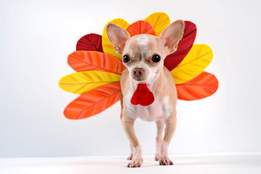You know what it looks like… but what is it called?
TAKE THE QUIZTrending: ‘Jim Crow’
Lookups spiked 2,800% on March 25, 2021
Jim Crow was among our top lookups on March 25th, 2021, following passage of legislation in Georgia that was seen by many as an attempt to restrict the rights of Black voters.
"It's a redux of Jim Crow in a suit and tie." That's how Stacey Abrams, who spearheaded efforts to organize Black voters in Georgia for the 2020 election, recently described the deluge of new voter restriction laws proposed by Republicans in the Georgia state legislature in the wake of their defeat.
— Nicole Hemmer, CNN, 25 Mar. 2021Mr. Biden joined Georgia Democrats on Thursday in denouncing efforts to limit voting, calling Republicans’ push around the country “un-American.”
“It is the most pernicious thing,” Mr. Biden said at his first formal news conference since taking office. “This makes Jim Crow look like Jim Eagle.”
— Nick Corasaniti, The New York Times, 25 Mar. 2021
We define Jim Crow as “ethnic discrimination especially against Blacks by legal enforcement or traditional sanctions.” In use since the early 19th century, Jim Crow comes from the name applied to a stereotyped Black man in a song-and-dance act. The word may also be found in a variety of settings, indicating any one of a number of restrictions or discriminations based on race.
It seems likely that in order to enforce her Jim-Crow car bill, Texas will be compelled to appoint a board of ethnologists to decide who are and who are not Afro-Americans.
— The Appeal (Saint Paul, MN), 19 Sept. 1891Howard University students and citizens in the neighborhood of Le Droit Park are silently protesting the establishment of a jim crow restaurant in their midst.
— Afro-American (Baltimore, MD), 24 May 1927Kentucky’s Jim Crow laws prohibiting Negroes from riding in coaches with whites was beaten by Sam Langford, the Negro pugilist, it is alleged, and as a result the Pullman company has been called on the defend a suit in McCracken County.
— Chicago Defender, 22 Jan. 1910
Trend Watch is a data-driven report on words people are looking up at much higher search rates than normal. While most trends can be traced back to the news or popular culture, our focus is on the lookup data rather than the events themselves.








